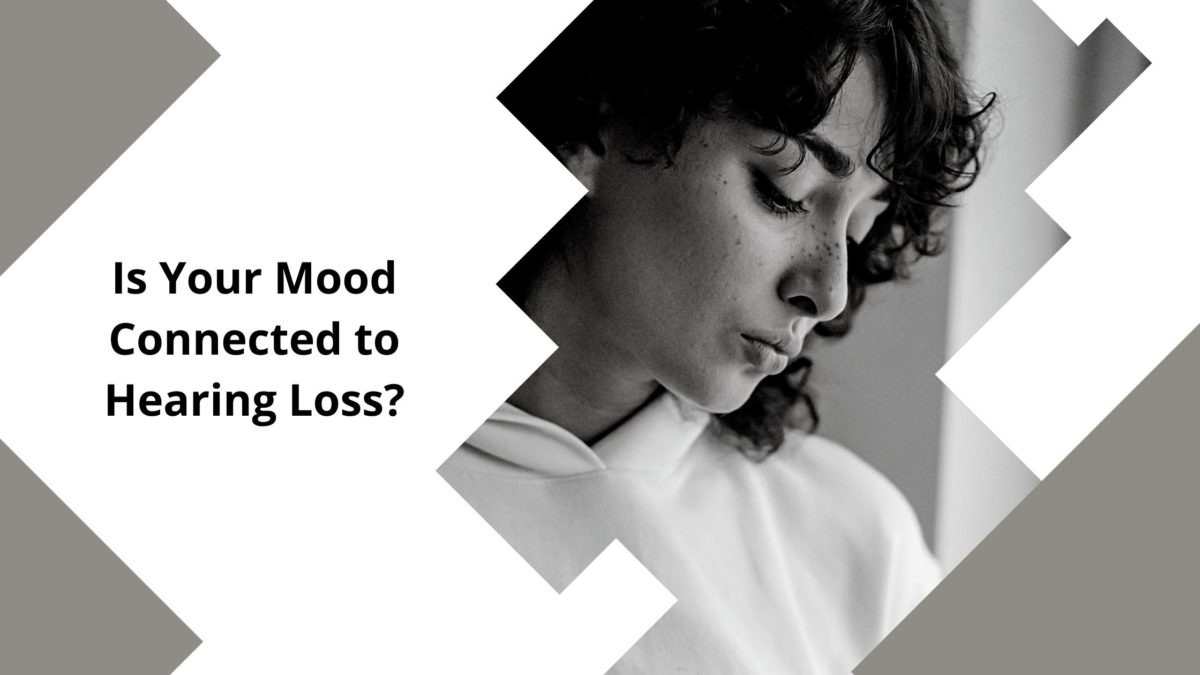One of the most profound experiences of the human condition is learning to recognize and moderate our feelings and emotions. In short, we humans are prone to moods. On the positive spectrum, we can identify these as content, happy, joyful, or peaceful. But we can swing towards negative feelings easily, too. Grumpy, stressed, defeated, and hopeless are all feelings even the most well-adjusted person feels from time to time. In an ideal world, we’d all be feeling those positive feelings constantly, but that’s just not how life works.
While outside triggers can certainly push us into a negative place, we learn with maturity to find helpful coping mechanisms and tools to deal with the times we’re down in the dumps. In some cases, we have to address external issues in our life before we find our internal balance restored. As we learn more about the link between depression and hearing loss, experts agree that confronting hearing loss can have a positive impact on our emotional health. If you’ve been feeling more negative than positive moods recently, hearing loss may be a culprit.
Depression and hearing loss
Depression is often reported as an issue by people with hearing loss. It is a condition that fundamentally makes communicating challenging in a culture in which connection is necessary. Our relationships are tested and even the simplest of tasks can become frustrating and effortful.
Scientists continue to study the relationship between depression and hearing loss, though there is already a large body of evidence linking the two. In 2019, a study found that in older adults with hearing loss, one in five had symptoms of clinical depression.
The impacts of depression can vary. One study found that among adults with self-reported hearing loss, 11.4 percent had moderate to severe depression. A larger number, around 19 percent, were found to have mild depressive symptoms.
Listening fatigue is real
Beyond the basic frustration that comes with hearing loss in our highly verbal culture, a phenomenon called listening fatigue can heap on feelings of tremendous exhaustion. Many people can relate to the feelings of depletion from too many hours spent listening at a training session, while a speaker drones on and on.
For people with hearing loss, amplify that feeling hundreds of times. People who have difficulty hearing must work much harder to spend time listening in regular conversation than a person with healthy hearing does. As the brain expends more effort, the effects can include extreme fatigue, headaches, and depression.
You can work with your mood
Remember that Google’s definition of mood is a temporary state. Our emotions are constantly in flux and a bad moment right now might quickly shift to a more positive feeling. There are ways to change your mood by starting a conversation with your nervous system, to direct your body and mind on more neutral ground.
Meditation and yoga are scientifically proven to have calming and restorative effects. According to the Mayo Clinic, they can decrease anxiety, chronic pain, depression, heart disease, and high blood pressure.
For instant relief, try dancing, singing, splashing your face with cold water, gargling, or humming. Each of these quick activities may activate the Vagus Nerve, which in turn triggers your parasympathetic nervous system. This is the system our bodies use to ‘rest and digest’ as opposed to the sympathetic nervous system which optimizes your body for ‘fight or flight.’
Ask for help
That said, if you think you are at risk for depression, ask for help. We do not have to bear the burden of mental distress alone. There are tools available that can aid you in your times of struggle. Voice your feelings to your medical provider, a trusted friend, or a spiritual mentor who can help you find support.
Confronting hearing loss works
Hearing loss isn’t an unsolvable condition. It’s estimated that 80 percent of people with hearing loss could be treated with hearing aids, though only about a quarter of those people use them.
Schedule a hearing consultation today to see if hearing loss is contributing to your unpleasant moods. Our team can guide you through the quick and easy process. If you’re a good candidate for treatment, we’ll guide you through the next steps in finding a better hearing reality.

